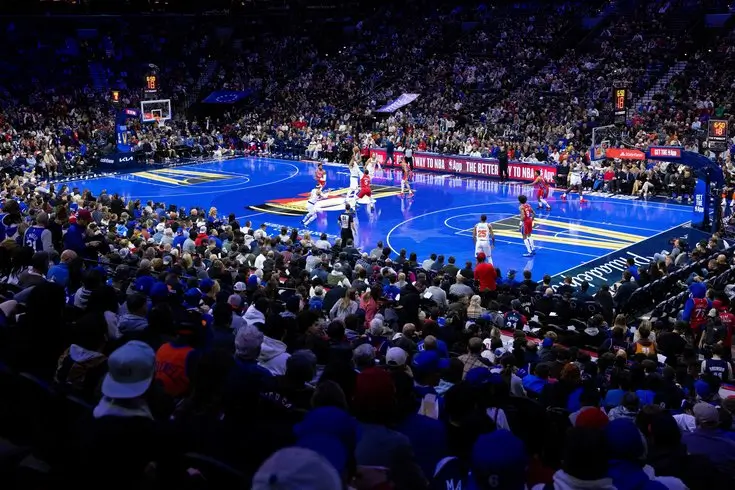In recent years, the rise of social media platforms like TikTok has significantly influenced countless aspects of modern culture, and college life is no exception. One of the most fascinating and fast-growing trends on TikTok is “RushTok,” a social media phenomenon centered around the rush process for Greek Life at large U.S. universities. Students, particularly young women, document their experiences during this intense and often emotional period, sharing the highs, lows, and in-betweens of rushing sororities. What began as simple documentation has exploded into a movement that has garnered billions of views, created a new breed of influencers, and fundamentally changed how people view Greek Life.
The Rise of RushTok: A New Chapter in Social Media Culture
RushTok has tapped into the heart of college culture in a way few other trends have. Each year, students from universities with large Greek Life systems—particularly in the South, with the University of Alabama leading the charge—flood TikTok with videos chronicling their participation in the rush process. These videos range from daily outfit reveals (known as “OOTDs”), to emotional updates on whether a student has received an invitation to join a sorority, to informational content detailing the intricacies of Greek Life.
RushTok’s massive popularity lies in its accessibility. For viewers, it offers an unfiltered glimpse into a world that has traditionally been shrouded in mystery or stereotypes. People who are unfamiliar with Greek Life, as well as those who are nostalgic for their own sorority days, are drawn to the endless stream of content. Through TikTok, the rush process becomes a communal experience, allowing users to feel like they are participating in the journey of hopeful recruits. This openness has sparked important conversations about the pros and cons of Greek Life, as well as its social implications within the broader college environment.
The Emergence of Influencers and the Business of Greek Life
One of the most notable aspects of RushTok is its ability to catapult everyday college students into the influencer spotlight. Greek Life, traditionally seen as exclusive and somewhat niche, has turned into an unexpected incubator for social media influencers who are racking up huge followings.
One prime example is Kylan Darnell, a junior at the University of Alabama who has been dubbed the “queen of RushTok.” Her bubbly personality and engaging content, centered around her rush experience and college life, have made her a sensation on TikTok. With her videos raking in thousands of views and likes, Darnell has secured lucrative sponsorship deals and brand collaborations, leveraging her platform to create income streams that have helped her pay for her education.
In an interview with Fox News Digital, Darnell expressed her gratitude for the opportunities that RushTok has opened up for her, noting that she never anticipated becoming a social media star when she started college. Despite her success, Darnell remains committed to her education and is pursuing her dream of becoming a sports broadcaster. Her story highlights the powerful intersection of social media and personal branding, illustrating how platforms like TikTok have given college students the chance to monetize their lives in ways that were previously unimaginable.
What’s even more impressive is how this phenomenon has changed the way people engage with the rush process itself. Gone are the days when rushing sororities was an entirely private affair. Now, hopeful recruits take to social media to seek advice, form virtual communities of support, and even share their rejections with audiences of strangers. This transparency offers insight into both the glamorous and challenging aspects of joining Greek Life, encouraging important conversations about its relevance, exclusivity, and the pressure it puts on young students.
RushTok: More Than Just a Trend
At its core, RushTok is more than just a viral social media trend—it has reshaped the way people perceive Greek Life and the rush process. Historically, sororities and fraternities were often viewed through a lens of exclusivity, with outsiders only getting a vague sense of the tradition and culture surrounding these institutions. RushTok, however, democratizes the process, offering people from all walks of life a front-row seat to one of the most significant college rituals in the U.S.
For some viewers, RushTok provides an inside look at the fashion, friendship, and prestige associated with Greek Life. For others, it sparks critical discussions about the drawbacks of the system, such as the social pressures that come with joining a sorority, or the inherent exclusivity and privilege that often accompany it. RushTok has thus opened the door for a broader debate on the value of Greek Life in today’s college landscape, with many questioning whether the tradition needs reform or even whether it is still relevant in the 21st century.
While Greek Life has long been a subject of fascination and scrutiny, TikTok has given it new visibility and a more nuanced portrayal. The platform has allowed individuals to share their personal narratives, whether they are filled with excitement, disappointment, or ambivalence. In doing so, RushTok provides a space for reflection on the experiences of those who participate in sororities and fraternities, and how these experiences fit into the larger context of college culture, privilege, and identity.
The Future of RushTok and Greek Life
As RushTok continues to grow, its impact on both Greek Life and social media will likely evolve. It’s possible that Greek organizations themselves may embrace or even begin to collaborate with influencers to promote their chapters or change their public image. On the flip side, the exposure that RushTok brings could also lead to increased scrutiny of Greek Life and its practices. Already, there have been instances where the content shared on TikTok has led to criticisms of the exclusivity and problematic aspects of sororities and fraternities, including issues related to diversity, inclusivity, and hazing.
Moreover, the rise of influencers like Kylan Darnell and the monetary opportunities that come with social media stardom could encourage more students to approach Greek Life not only as a social or extracurricular activity but also as a potential business venture. This raises questions about the commercialization of the rush process and whether the authenticity of the experience is being compromised for the sake of likes and sponsorships.
Regardless of how RushTok continues to evolve, one thing is clear: it has cemented itself as a major player in both the social media and Greek Life landscapes. The conversations it has sparked about tradition, privilege, and the pressures of college life are not going away anytime soon. As more students use TikTok to share their rush experiences, the phenomenon will likely continue to grow, influencing both current and future generations of students.
A New Era for Greek Life
RushTok has transformed what was once an exclusive college tradition into a viral social media event, accessible to millions of viewers across the globe. By blending fashion, personal stories, and the highs and lows of Greek Life, it has opened up conversations about the relevance and inclusivity of these institutions in modern times. As social media influencers like Kylan Darnell continue to gain popularity, RushTok will undoubtedly shape the future of Greek Life and the role it plays in U.S. college culture.
As RushTok grows, it offers both a platform for individual expression and a space for broader cultural reflection, ensuring its place as more than just another viral trend, but a cultural phenomenon shaping the way we view one of America’s oldest college traditions.
No comments yet.








